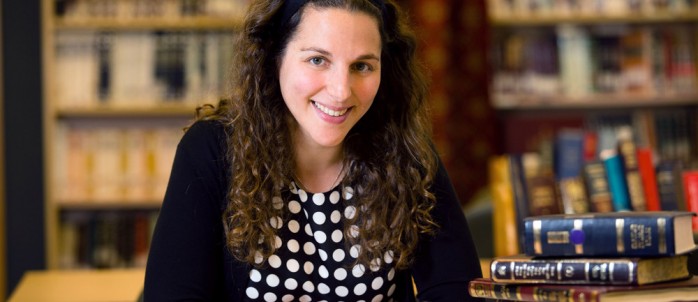
Lila Kagedan, who received her ordination from New York’s Yeshivat Maharat in June, was the first to take on the moniker usually reserved for her male counterparts.
The first Orthodox woman ordained in the United States to take on the title of rabbi, rather than the more commonly used rabbah or maharat, will soon take on a pulpit position at an unnamed synagogue, London’s Jewish Chronicle reported on Tuesday.
While women affiliated with the nascent Open Orthodox movement have been granted ordination for several years now, Lila Kagedan, who received her ordination from New York’s Yeshivat Maharat in June, was the first to take on the moniker usually reserved for her male counterparts.
Speaking at a Limmud conference, she stated that she decided to call herself rabbi because she “wanted to take a title in a position of serving the community, so that people would know exactly what it is,” adding that “change is difficult and frightening. We are very much used to a certain aesthetic when we say ‘rabbi.’” The issue of female ordination has been extremely divisive within the Orthodox community, with the ultra-Orthodox Agudath Israel of America and the more moderate Modern Orthodox Rabbinical Council of America issuing statements condemning the practice.
Such denunciations may herald the beginning of a schism both within the American Modern Orthodox community struggling to define the role of religious women within the context of a largely egalitarian outside society and between the modern and ultra-Orthodox branches of Judaism.
While the ultra-Orthodox Agudath Israel has in essence accused Open Orthodoxy of heresy, the RCA statement was more temperate, sayng that “RCA members with positions in Orthodox institutions may not ordain women into the Orthodox rabbinate, regardless of the title used.”
According to the Jewish Chronicle, Kagedan has stated that she believes that the community is increasingly ready to embrace female clergymen and “not get so hung up on the title.”
“The Jewish world has increasingly, if incompletely, moved toward more gender equity as women have assumed leadership roles that were once the primary or even exclusive province of men,” Steven Cohen, a sociologist at Hebrew Union College who studies American Jewry, explained.
“Moreover, in recent years, those loosely associated with a camp known as ‘Open Orthodoxy’ have achieved greater cohesion and recognition. The two trends have come together to generate both an institution and a movement for Orthodox women’s spiritual and communal leadership. Rabbi Kagedan may be the first woman to head an Orthodox congregation, but she won’t be the last.”
Full story here.

